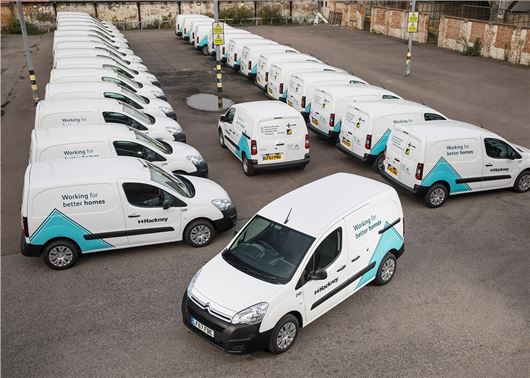Councils criticised for slow take-up of electric vehicles

Councils have been accused of double standards on air quality after it emerged that 88 per cent of the vehicles local authorities bought over the past year were fossil-fuelled.
In July the Government launched its Road to Zero strategy, which outlined plans to improve air quality by encouraging drivers to swap their petrol and diesel vehicles for electric; however, new research suggests that this message is being ignored by local authorities.
>>>EV owners face insurance shock
Indeed, of the 82 councils with the worst air quality in the UK, not a single one bought, rented or placed an order for an electric vehicle over the past 12 months. The findings are part of a report on the take-up of EVs from biofuel consultancy specialist the National Non-Food Crop Centre.
"If this Government isn’t serious about reducing CO2, why should they expect the average motorist to be?”
Nic Dakin MP, Chair of the All Party Parliamentary Group for British Bioethanol, which commissioned the study, said: “These figures do call into question the Government’s commitment to cutting transport emissions. Local authorities need support from Government to make the changes necessary to protect public health and tackle the serious threat of climate change.
"If the Government isn’t serious about reducing CO2, why should they expect the average motorist to be?”

Nine out of 10 vehicles operated by councils are powered by petrol or diesel, with the latter making up 71 per cent of all cars and vans. The report found that just five per cent are electric.
The report calls for the introduction of biofuels such as E10 petrol to help to displace fossil fuels in the short to medium-term while waiting for electric vehicles to reach the critical mass needed to make a large-scale difference to air quality.
The research follows the announcement that the London Mayor Sadiq Khan is extending the city’s Ultra-Low Emission Zone to the North and South circular roads in 2021. From 2020, Birmingham City Council plans to charge drivers of cars and vans that do not meet Euro4 petrol and Euro6 diesel standards up to £10 per day. Nottingham, Derby, Leeds and Southampton are in the process of drafting clean air zones that will introduce penalties for the most-polluting vehicles.
Figures from the Society of Motor Manufacturers and Traders show around 62 per cent of new vehicle sales to be petrol, whilst only 0.6 per cent are electric. With the average life of a vehicle around fourteen years, these sales figures are likely to represent the vehicle fleet on UK roads for at least the next decade.

 Dan Powell
Dan Powell
 Jaguar causes a stir with new brand identity
Jaguar causes a stir with new brand identity
 Private e-scooters to be made legal on UK roads
Private e-scooters to be made legal on UK roads
 XPeng launches in the UK
XPeng launches in the UK
 Car insurance premiums fall again
Car insurance premiums fall again
 New Renault Master E-Tech 100% electric now available to order
New Renault Master E-Tech 100% electric now available to order
 Collision risk around airports is double the national average
Collision risk around airports is double the national average
 Question of the week: Can an MHEV travel on electric power?
Question of the week: Can an MHEV travel on electric power?





.jpg)






TheGentlemanThug on 21 August 2018
Given the cash-strapped nature of most councils and the lack of infrastructure for purely electric vehicles, this is hardly surprising.Purely electric vehicles simply don't fit the bill for the majority of people right now.
mmmmm on 21 August 2018
All reasonable people and tax payers want our councils to be the most efficient, productive, leanest bodies, though this hardly translates to the private buyer, if as mentioned already, they do not make financial sense, and'or fit in with the use to which they will be put...not forgetting the major hurdles that on street parking and charging present, broken charging points, points in use while users enjoy a day at the shops/liesure centre, etc, etc. Lots of persuading to do, with believable, factual information.
Add a comment